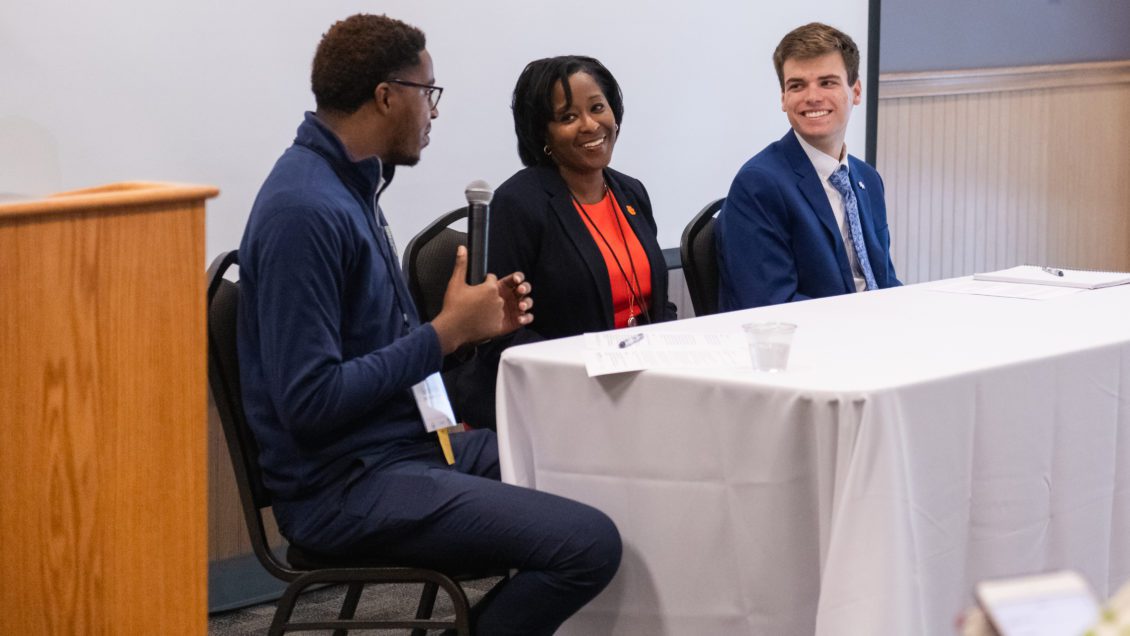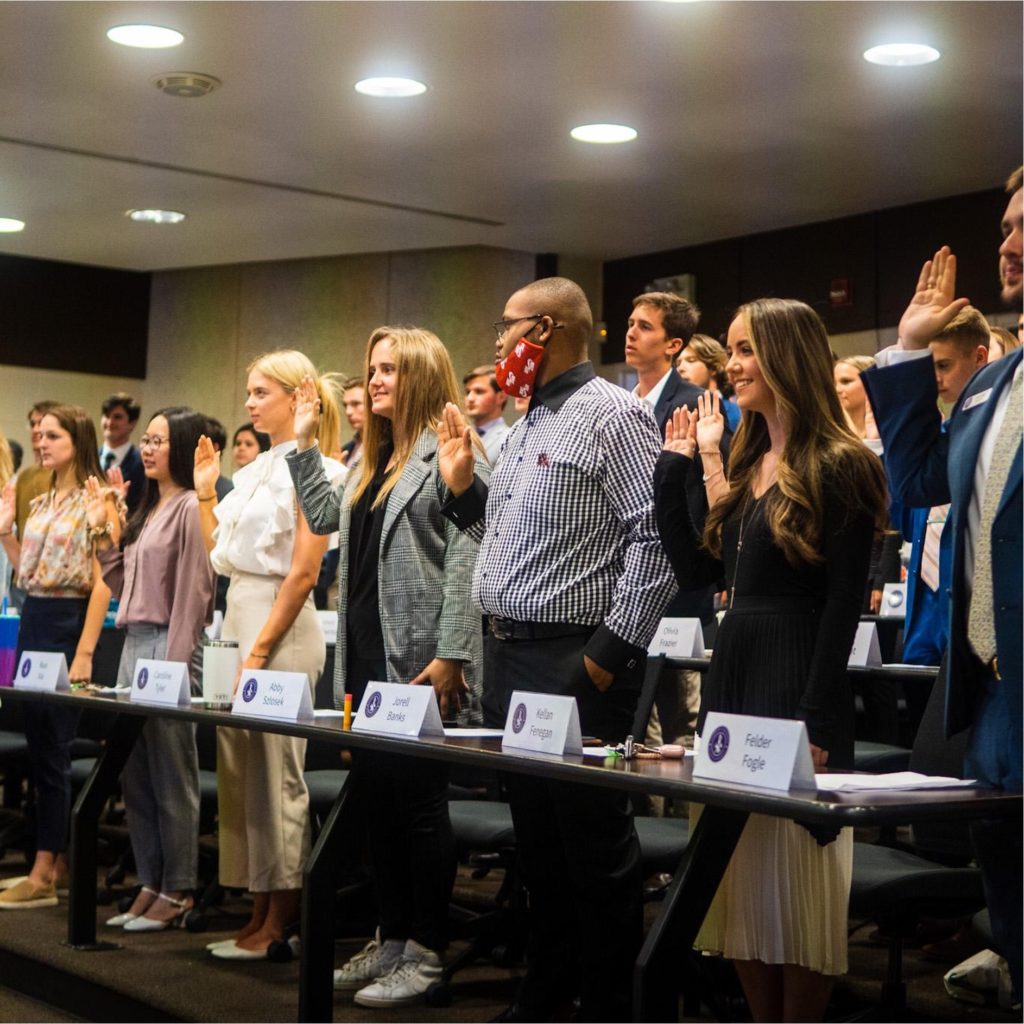
By Sidney Smith, Junior, Marketing, Senate Pro-Tempore
It is Monday night at 7 p.m., and the 64 elected senators fill the Clemson Undergraduate Student Government (CUSG) Senate chambers.
“I call this session of the 66th Undergraduate Student Senate to order. We will begin with the invocation followed by the Pledge of Allegiance,” states Thomas Newell, senate president.
The professional atmosphere of CUSG Senate is one of inspiration, opportunity and unique ambition to improve what it means to be a part of the Clemson Family. Whether it be through the structure of a Monday night, the impact of passed legislation, or the proactive support for student perspective, the Senate strives to enact positive change for all Clemson students.
Senate meetings start with a speaker — often a University leader, professor or fellow student speaking on a relevant topic, resource or area of campus that needs advocacy. Then, six committee chairs and five executive members give weekly reports, including insight from various administrators and an opportunity to channel student questions and concerns.
After reports, authors of new legislation present their recommendation, resolution or bill for a question and answer period known as first read. The following week, the same piece of legislation is in second read, where senators engage in a constructive pro/con debate leading up to a vote on whether or not to pass the legislation. If the bill passes through the Senate, it is sent directly to the relevant University administration to demonstrate widespread student support.
This entire structure is formally known as Robert’s Rules of Order. This framework, combined with passionate senators, makes history at Clemson University.

“Parliamentary procedure ensures that every member receives an equal voice in everything we do,” explains Newell. “It creates a space, through these rules, where everyone is fundamentally equal and equipped to serve the student body to the best of their ability.”
Examples of previously passed legislation include the pass/fail resolution during the COVID-19 pandemic, the establishment of the academic forgiveness policy, support for a tuition freeze for the 2020-21 academic year, and even support for a scholarship for descendants of black laborers at Clemson University.
Passing legislation is a tremendous accomplishment for the University and its students. However, according to Newell, the most significant impact of the Senate lies elsewhere.
“Oddly enough, some of the greatest potential for positive impact is in some of those day-to-day operations — the students sitting in on committee meetings,” states Newell.
Outside of Monday nights, each of the six committees — Academic Affairs, Inclusion and Equity, Infrastructure and Operations, Health and Human Services, Student Life, and Finance and Procedure — have weekly meetings to work on projects, write legislation, plan events and influence major decisions made by respective administrators seeking student feedback.
The Senate is also responsible for student appointments to 57 external commissions and boards each year, along with thousands of dollars to allocate to student capital improvement projects. These day-to-day operations turn student opinion and ideas into advocacy and positive change.
Caroline Avinger, chair of the Inclusion and Equity Committee, shares one crucial purpose of her committee — to advocate for underrepresented students and identities.
“My committee pushes the administration to do more,” states Avinger. “We make sure that conversations are had about tough issues. We are (all) supposed to help students in every way we can.”
Kimberly Poole, the CUSG faculty adviser, gives a first-hand perspective of this communication and stresses the importance of student voices in many decision-making rooms.
“I’m in many meetings and there is typically a student representative, often someone from CUSG, and their voice matters at the table,” Poole says.
She elaborates that representing the student body is a complex process, but every student, whether they are an elected senator or not, is capable of using their own unique experiences to promote positive change.
Inside the professional atmosphere of the senate chambers is a passionate Clemson Family built on perspective and advocacy. President Newell, chair Avinger and CUSG adviser Poole agree every Clemson student should consider running for a seat on the Senate.
Elections for about 60 seats occur the week before Spring Break each year, with five seats held for incoming freshmen, who interview for the positions at the beginning of each Fall semester. Interested students should read emails from CUSG for information about interest meetings, applications and deadlines.
It is Monday night at 7 p.m., and the 64 newly elected senators bring their perspective, passion and love for Clemson into the Undergraduate Student Senate Chambers. It is a room of anticipation for positive change and an opportunity to make history, far beyond the professional atmosphere.
